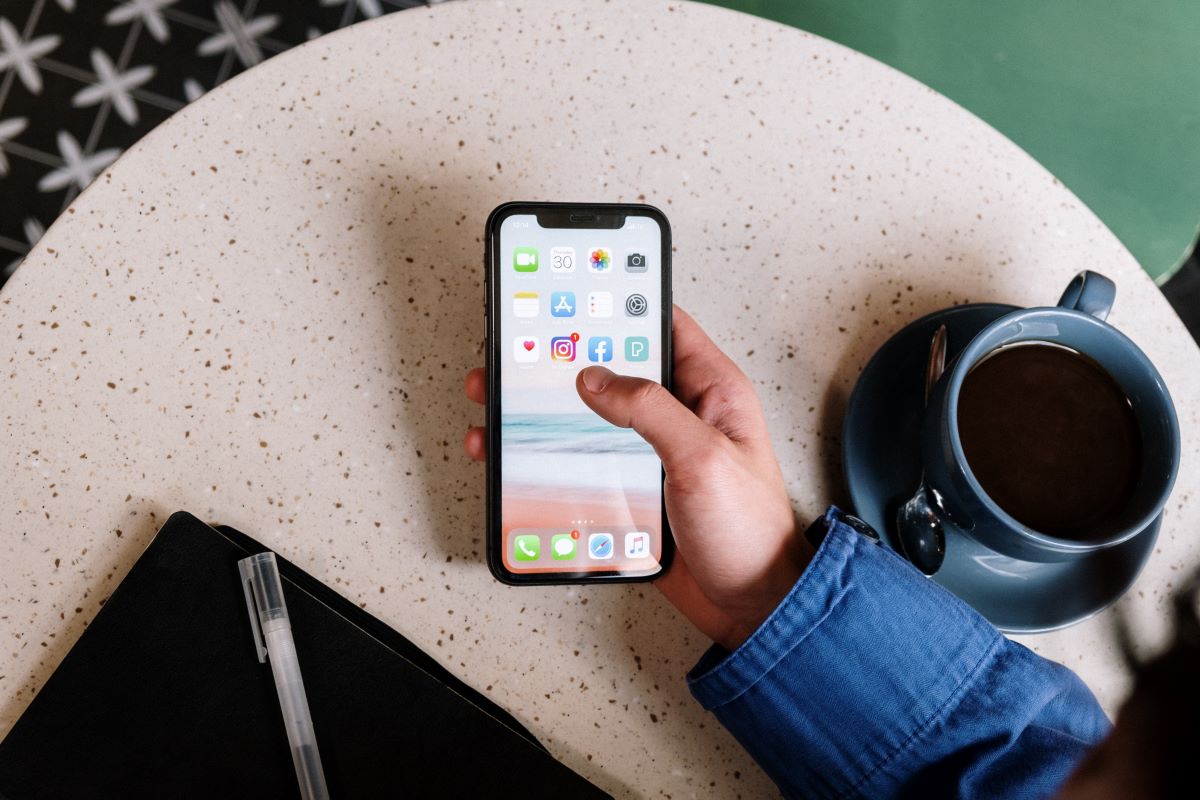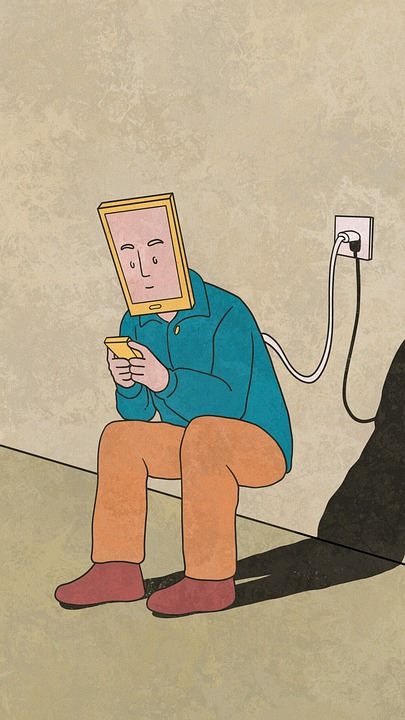Can you really do without your cell phone?
The cell phone.
Today, this little object is part of most people’s lives. For some, it’s almost an extension of ourselves. Do you feel like you couldn’t live without your phone? Perhaps you’ve been told several times that you’re addicted to it. You’re probably a Nomophobe. Let’s find out what that means.

1. What is nomophobia?

With the advent of smartphones and their increasing integration into our daily lives, a new phenomenon has emerged: nomophobia. Nomophobia is a contraction of the terms “no mobile phobia“, and refers to the excessive fear or anxiety felt when a person is separated from or unable to use their cell phone.
As you can see, nomophobia is linked to an addiction to cell phones.
Nomophobia was first identified in the early 2000s, and since then has become increasingly prevalent.
2. Symptoms
The symptoms of nomophobia may vary from person to person, but they generally include:

- The constant need to check your phone, even when there are no notifications
- Inability to part with phone, even for short periods
- Prioritization of phone use over face-to-face social interaction
- Inability to concentrate on other activities due to constant preoccupation with the phone.
- Fear of losing, forgetting, stealing or breaking the phone; fear of running out of battery. In other words, the anxiety of finding ourselves in a situation that prevents us from being able to use our cell phone.
3. What causes it?

Several factors can contribute to the development of nomophobia. The constant availability of smartphones and their ease of use make these devices very attractive and hard to give up.
What’s more, cell phones have become multi-purpose tools that not only allow you to make calls, but also to surf the Internet, play games, access social networks, take photos and much more.
Versatility = Source of information, entertainment and social connection
Nomophobia can have a significant impact on a person’s daily life.
Interpersonal relationships can suffer, as constant obsession with the phone can lead to neglect of real interactions and a deterioration in face-to-face communication.
What’s more, nomophobia can affect productivity at work or school, disrupt sleep and emotional balance, and even lead to accidents or incidents due to inappropriate use of the phone in dangerous situations, such as while driving.
4. How to maintain a healthy relationship with your cell phone?
So how can we overcome nomophobia and maintain a healthy relationship with our cell phone? Here are some effective strategies:
-
Become aware of your usage habits
Start by assessing your cell phone usage habits. Note how much time you spend on it and in which situations you feel most anxious when you don’t have access to your phone.
-
Become aware of your emotions
It’s also important to take the time to identify the emotions associated with your phone use. Do you tend to use your phone when you’re bored, worried or anxious?
Identifying these emotions will help you identify the link you have with your phone today. But it will also enable you to set up activities that allow you to work directly on these emotions.
-
Set limits on use
Set clear rules for the use of your phone. For example, set phone-free times, such as during meals, before going to bed or as soon as you wake up. There are apps available that allow you to regulate your usage.
-
Practice moments of disconnection
Regularly plan moments of total disconnection, where you leave your phone aside and engage in technology-free activities. This could be a walk in nature, reading a book or simply spending quality time with loved ones.
-
Do other kinds of activities
Identify activities that give you pleasure and fulfillment outside of using the phone. This could include physical activities, creative hobbies, meditation or engaging in social activities.
-
Encourage face-to-face social interaction
Pay special attention to interpersonal relationships and favor face-to-face interactions over virtual ones. Organize get-togethers with friends, participate in group activities and practice active listening during conversations.
-
Remove notifications from certain applications:
Today, there are many applications that save us from having to go directly to the web page. These applications are often associated with notifications. Someone sends you a message, likes, comments, a new newsletter…. in short, everything is done to draw your attention back to the application.
Nomophobia may seem like a challenge, but it’s possible to overcome it and develop a more balanced relationship with our cell phone.
By becoming aware of our habits, setting limits and finding alternatives, we can reduce anxiety and regain a higher quality of life.
Remember that you are in control of your phone usage and can find a balance that works for you.
5. Getting help for your addiction
If, despite the various little tools given above, it’s difficult and anxiety-provoking for you to part with your phone, you can be accompanied by a therapist.
Cognitive-behavioral therapies will help you to :
1. Une identification des pensées et des croyances négatives : La TCC aide à identifier les pensées automatiques négatives liées à l’utilisation excessive du téléphone et à la peur de ne pas l’avoir à portée de main.
Cela permet de remettre en question ces pensées et de les remplacer par des pensées plus réalistes et positives.
2. Une modification des comportements problématiques : La TCC se concentre sur la modification des comportements dysfonctionnels. Elle peut aider les individus à apprendre des stratégies pour réduire progressivement l’utilisation excessive de leur téléphone et à adopter des comportements plus sains et équilibrés.
3. Une gestion de l’anxiété : La nomophobie est souvent associée à l’anxiété et à la peur de manquer quelque chose d’important. La TCC offre des techniques efficaces de gestion de l’anxiété, telles que la relaxation, la respiration profonde et la pleine conscience, qui peuvent aider les personnes à gérer leur anxiété de manière plus adaptative.
4. Une exposition progressive : La TCC utilise souvent des techniques d’exposition progressive pour aider les individus à faire face à leurs peurs et à réduire leur évitement. Dans le cas de la nomophobie, cela peut impliquer de se séparer temporairement de son téléphone pendant de courtes périodes, puis d’augmenter progressivement la durée de la séparation.
5. Une acquisition de compétences d’adaptation : La TCC peut aider les personnes à développer des compétences d’adaptation pour faire face aux situations qui déclenchent leur anxiété liée à la nomophobie. Cela peut inclure des techniques de gestion du stress, des stratégies de communication assertive et la recherche d’alternatives saines à l’utilisation excessive du téléphone.

